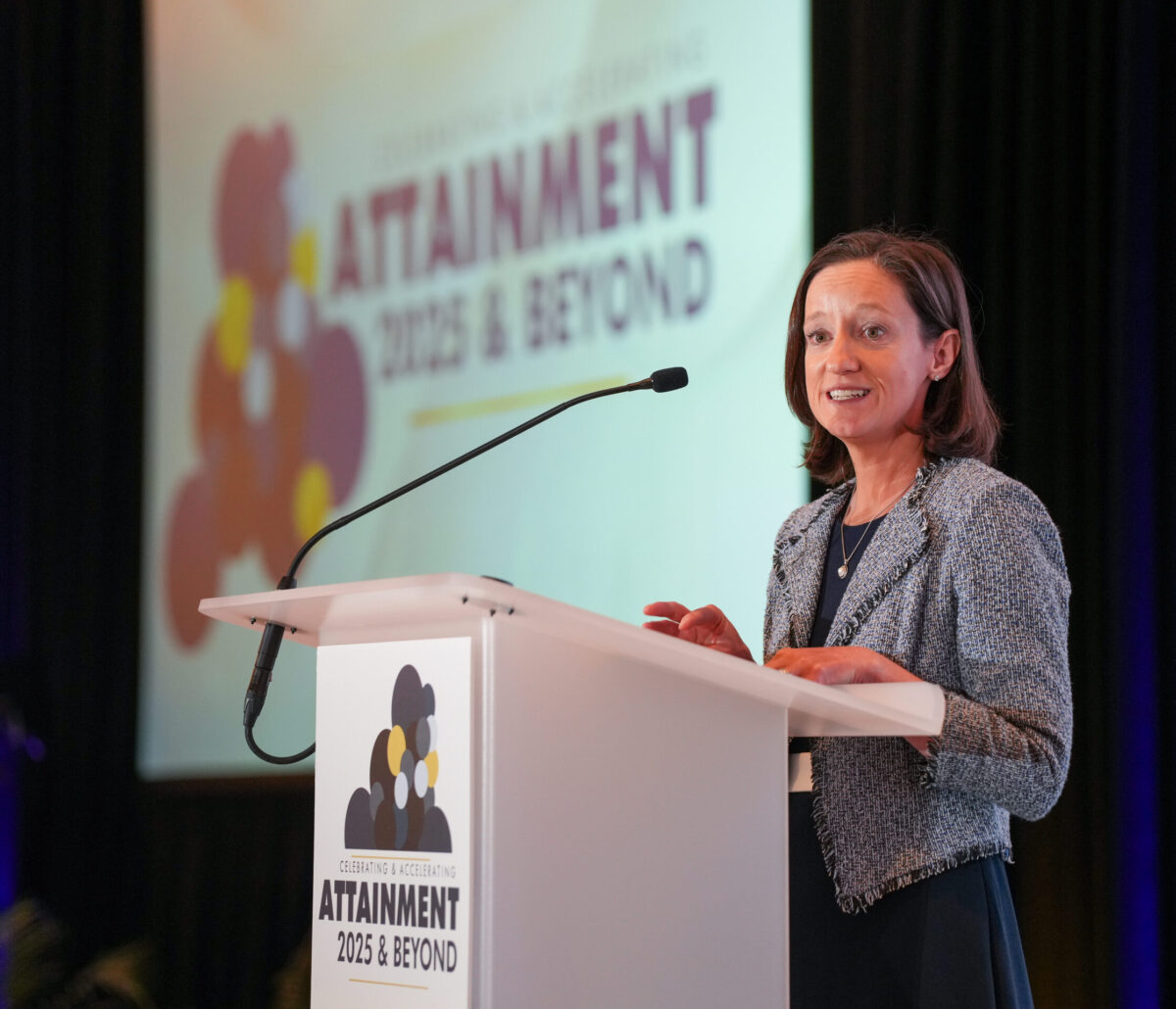Bill & Melinda Gates Scholarship Program Targeting Low-Income, Minority Students Proves Full Financial Commitment Increases College Access and Success
Published May 13, 2014
Washington, D.C., Feb. 16, 2010—In 1999, the Bill & Melinda Gates Foundation began an innovative scholarship program providing full financial support to low-income, minority students across the United States. The Gates Millennium Scholars (GMS) program targets high-achieving African-American, American Indian/Alaska Native, Hispanic-American, and Asian/Pacific Islander American high school students to help them overcome the many challenges they will likely face while pursuing postsecondary education. The GMS program has already pledged more than 10,000 “last dollar” scholarships—full funding of college tuition, fees, books, and housing—with an ultimate goal of funding 20,000 scholarships by 2020.
In a new synthesis report, Expanding Access and Opportunity: The Impact of the Gates Millennium Scholars Program, the Institute for Higher Education Policy’s (IHEP) extensive summary of the GMS program shows that reducing the financial burden of low-income, minority college students leads to enhanced persistence, college completion, and community engagement after college. The IHEP research also demonstrates that receiving scholarships reduces the work and debt burdens low-income, minority students often experience while offering more flexibility in their enrollment choices. Other positive outcomes among GMS Scholars include: students are more likely to enter and persist in a science, technology, engineering, or mathematics major; and students enter graduate school immediately on completion of their undergraduate degree.
“Despite the fact that many deserving students are academically and socially prepared for the challenges of higher education, students from low-income families who are minorities continue to face barriers to accessing and completing a postsecondary degree in a timely manner,” said IHEP President Michelle Asha Cooper, Ph.D. “The GMS program is an excellent example of how to target students and provide the financial resources needed to overcome one of the largest barriers low-income, minority students face and expand their opportunities in pursuing a quality education.”
To become a GMS Scholar, students must be a citizen or permanent resident of the United States, demonstrate financial need by showing eligibility for a federal Pell Grant, and have at least a 3.3 grade point average in high school. Each student is nominated by a teacher or counselor and must compose an essay providing insights into their personal characteristics. The essays are scored using a set of noncognitive criteria, such as leadership and citizenship qualities, positive self-concept, realistic self appraisal, availability of a strong support network, and ability to handle racism. These qualities are believed to help students during their postsecondary experiences as well as increase minority access and leadership at higher education institutions.
As part of its strategic objectives, the Bill & Melinda Gates Foundation commissioned IHEP and other higher education researchers to conduct an in-depth evaluation of the GMS program. Expanding Access and Opportunity utilized comparative data for several cohorts of GMS Scholars and examined outcomes from a 2006 IHEP report to synthesize the findings to gain a better understanding of the affect on GMS Scholars during and after college. The report focuses primarily on GMS scholar recipients and non-recipients who entered college in 2000 and 2001 and have been out of high school at least six years.
For more information about the Gates Millennium Scholars program, visit www.gmsp.org. To download a free copy of Expanding Access and Opportunity: The Impact of the Gates Millennium Scholars Program or for more information about IHEP's evaluation work, visit the organization’s Web site at www.ihep.org.


